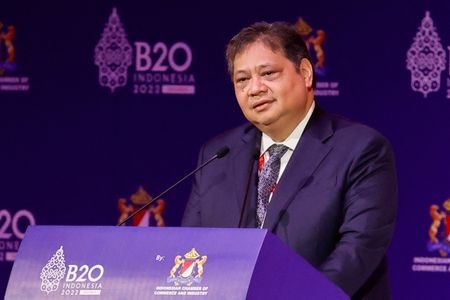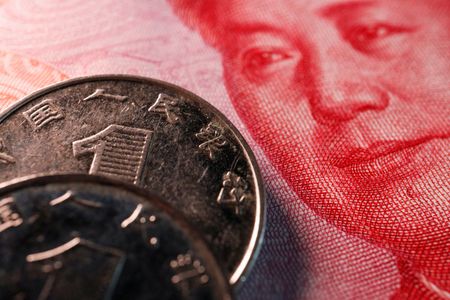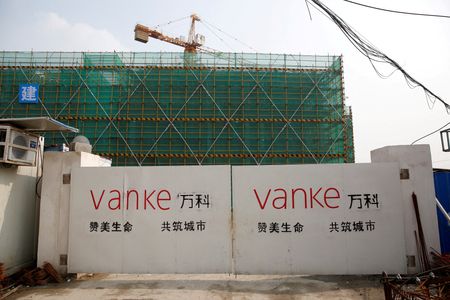By Stefanno Sulaiman
JAKARTA (Reuters) -Indonesia will require natural resource exporters to hold all proceeds onshore for at least one year, its chief economic minister said on Tuesday, a move that could boost the country’s foreign exchange reserves by $90 billion a year and support the local currency.
The new requirement will apply to every export with a shipping document worth at least $250,000, starting from March 1, said Minister Airlangga Hartarto.
Under current rules, exporters of natural resources such as coal, palm oil and nickel products are required to retain just 30% of such proceeds in the domestic financial system for three months.
The office of the Coordinating Ministry for Economic Affairs said the new requirements could increase Indonesia’s foreign exchange reserves by $90 billion per year. The country’s reserves were $155.7 billion at end-December.
“Conversion into rupiah can increase U.S. dollar supply. And without excessive intervention by the central bank through interest rates or dollar sales, this can reduce the rupiah’s volatility,” Airlangga said.
The rupiah this month hit its weakest against the U.S. dollar since July.
The proceeds could be used for business operations if converted into rupiah, Airlangga told reporters, while also encouraging exporters to swap their dollars for rupiah or borrow from banks if they are reluctant to convert.
The export earnings retention rules have been controversial since they were first introduced in 2023, praised by some bankers and analysts for boosting dollar liquidity but criticised by some exporters who said they needed to pay their bills.
To make it less painful for exporters, the central bank has been offering term deposit instruments with a competitive return.
Airlangga said capital gains from such term deposits would not be taxed under the new measure.
The executive director of the Indonesian Mining Association, Hendra Sinadia, said even the current retention level has disrupted cashflow.
“I hope this news of 100% retention won’t become a reality,” he said.
Palm oil companies could comply if their funds are accessible when converted into rupiah, Eddy Martono, the chairman of industry association GAPKI, said, although he warned of potential currency loss.
(Reporting by Stefanno Sulaiman; Additional reporting by Bernadette Christina; Writing by Gayatri Suroyo; Editing by Martin Petty and Alex Richardson, Kirsten Donovan)










